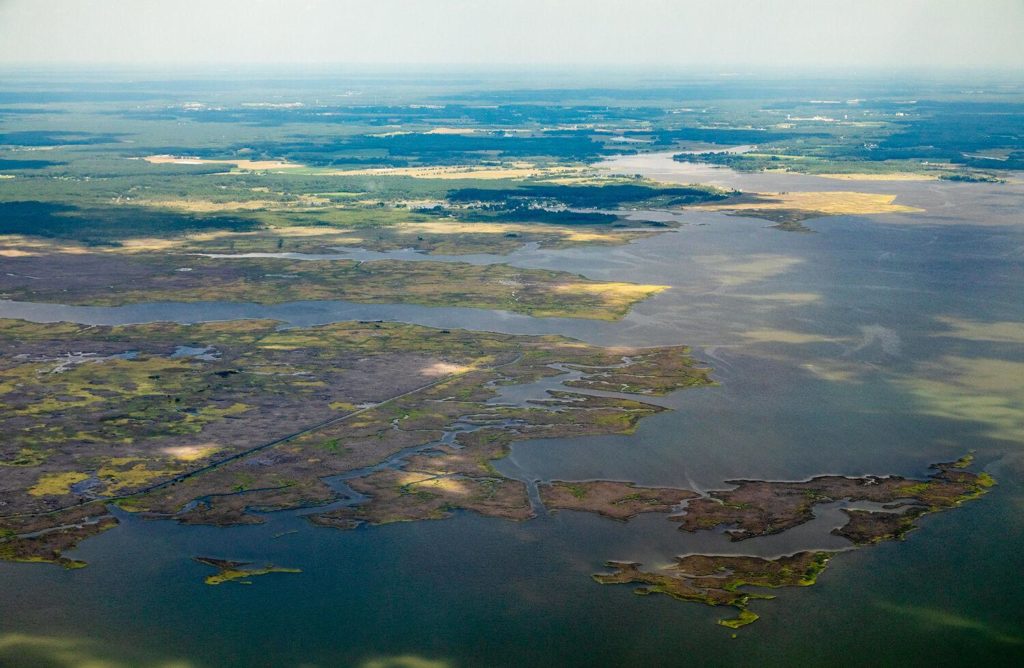By Jeremy Cox, Bay Journal News Service
As of January, the restoration of the Manokin River’s oyster reefs still looked to be on shaky ground.
The Maryland Department of Natural Resources had neither the funding nor the clear legal go-ahead to perform the work. Now, it has both.
The Manokin, a river in Somerset County on the Chesapeake Bay’s Eastern Shore, is the last of five Maryland tributaries targeted for large-scale oyster restoration under the 2014 Chesapeake Bay Watershed Agreement. The plan commits Maryland and Virginia to restore oysters in 10 tributaries by 2025, five in each state.
The DNR plans call for rebuilding reefs and planting hatchery-spawned oysters across 421 acres of river bottom in the Manokin, a $30 million project that’s the largest such restoration Baywide and in the world.
The Maryland Board of Public Works, a three-member panel chaired by Democratic Gov. Wes Moore, removed the funding obstacle during its Feb. 15 meeting. The board approved the first installment of a $9.1 million contract with the nonprofit Oyster Recovery Partnership.
The funding will enable the group to launch the active restoration of the Manokin as well as continue work in the remaining tributaries, officials say. The contract extends until the end of 2025.
Meanwhile, a Circuit Court judge on Feb. 3 lifted an injunction that had blocked the work from starting. The action stems from a lawsuit filed by the Board of Somerset County Commissioners in 2021 that had sought to stop the project. The latest legal development was first reported by the County Times of Somerset County.
The lawsuit argued that the state’s plans to use stone to build reefs would make it “impracticable, bordering on impossible” to harvest oysters in the river, not only disrupting oyster harvests but also crabbing and fishing.
Attorneys for DNR countered that there would be no harm to the oyster industry because harvests have been banned in the Manokin since it was declared a sanctuary in 2010. As for other fishing impacts, they argued that such claims were “speculative.”
The judge in the case denied the county’s petition for a preliminary injunction barring the reef work, but the case remains open, according to the attorney general’s office.




